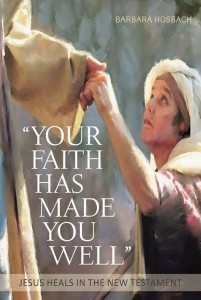It’s Perfect – Not!
By Janice Lane Palko
It was Father’s Day weekend thirty-one years ago. Married only a couple of years, my husband and I had moved into our first house that previous January. We’d spent that spring painting, wallpapering—the things you do to get a home into shape. On Saturday of that weekend, I’d cleaned the whole house while my husband had spent the day outside trimming hedges, weeding, and cutting grass in anticipation of a Father’s Day picnic for both sides of our family—the first event in our first home.
As we called it a day, I remember looking at our neatly manicured lawn and gleaming house and thinking, “Everything is perfect.”
Then the phone rang at 7:04 a.m. Who calls that early on a Sunday morning? I thought as my husband rolled over and answered it. When I saw the color drain from his face, I knew something was terribly wrong. He hung up and stared blankly at me, too stunned to show any emotion. “That was my mom. Tommy’s been killed in a motorcycle accident.” Tommy was his twenty-three-year-old little brother.
We’d anticipated a Father’s Day picnic filled with fun and laughter. Instead, we were now faced with death, identifying a body at the morgue, and making funeral arrangements.
So much for perfection.
Flash forward to June seven years later. I’m sitting in a counselor’s office after suffering for months with panic attacks. “From what I’ve observed,” the kind therapist said, “You are very hard on yourself. You need to allow yourself to be human. You think you have to be perfect.”
As you can see, my dance with perfection has been filled with missteps. From Tommy’s death, I learned that life is not perfect and never will be, and through my joust with anxiety, I learned that I am not perfect and never will be.
So, how does someone who’s had these types of reality checks with perfection square them with Jesus’s words in Matthew’s Gospel where He instructs us to “Be perfect just as your heavenly Father is perfect.”
To a perfectionist, His words area a recipe for disaster. You may have heard the adage “Perfection is the enemy of the good.” Well, when we perfectionists get rolling, we tend to discount anything, however good, that does not meet our level of perfection. We get tangled up in being immaculate. I’ve worked hard not to be a perfectionist, so when I came across that bit of scripture again recently, I, once again, reacted to it with disregard and confusion—not a good way to react to scripture.
I know perfection is impossible and shouldn’t even be pursued lest I become paralyzed in my quest to be flawless. There is no perfection on this side of eternity. I know I cannot be perfect, I made myself sick trying. Why would Jesus impose such an impossible directive on those He loves?
Ah, but I’ve also come to learn that when Jesus commands us to do something, He always promises to provide us with the grace to achieve it. His words in John’s Gospel provide the key. “Apart from me you can do nothing.” Apart from Him, I cannot reach perfection. Apart from Him, the world wallows in sin and destruction. Perfection in the way Jesus means is a work of transformation and something for me not to achieve but to surrender to. Through Jesus and His act of redemption, we reach perfection. Paul in his letter to Philippians gives us this assurance: “I am confident of this, that the one who began a good work in you will continue to complete it until the day of Christ Jesus.”
I’ve learned that Jesus is working on me, and that sounds absolutely perfect to me.



